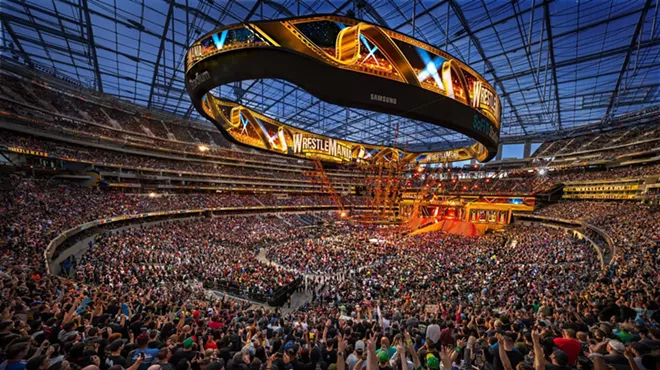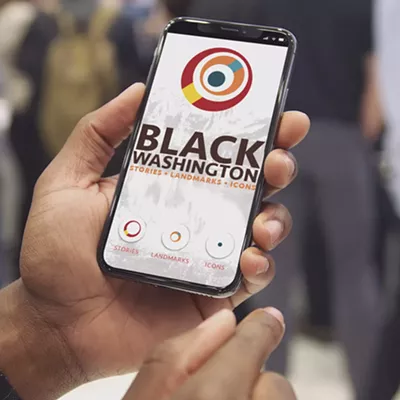Wondering what the hell is wrong with kids these days is an eternal preoccupation, but this time we have data.
Even before the pandemic, data has shown, suicide rates and depression rates for teens skyrocketed. Adolescent happiness peaked around 2007 through 2009, and then mysteriously collapsed. Pundits have offered up numerous theories: It's the smartphones. It's the overprotective parenting. It's climate change and school shootings and Trump and the unbearable grimness of a dark future.
Let me offer my own grand theory: It's everything, everywhere, all at once. See: Everything, Everywhere, All At Once.
Most multiverse movies — all the way back to It's a Wonderful Life — focus on regret over a life not lived, on the what-could-have-beens and the would-that-it-weres. And in the arc of the lead, Evelyn (Michelle Yeoh), facing down divorce and an IRS audit amid the ruins of her discarded dreams, Everything, Everywhere does that too.
But it's when the Best Picture-winning movie shifts into its more manic second act that the movie finds its bigger epiphany. It's like a switch flips from indie movie to music video — it becomes more frantic, more absurd — as if it had hooked up directly to my ADHD brain and just let it stream.
Critic Peter Suderman argues that watching the movie, with all its simultaneous fragments, is almost like being on social media.
As the movie moves from the midlife crisis of a mother to the quarter-life crisis of her daughter, I'd argue it's about being on social media, too.
Because to live on the internet is to live in the multiverse — to experience everything, everywhere, all at once.
Where Evelyn is being crushed by a sense of powerlessness, of impotence, of stasis — for her daughter, Joy, it's the opposite. Joy's crisis is one of omnipotence. She's a god of chaos whose overloaded mind lets her experience "every world, every possibility" at the same time. She can turn bullets into smoke and heads into confetti.
And when we log on, too, we get a taste of that kind of power. You can shape your own reality; choose your own profile picture, your own username. Annoyed with someone? Block them. Feeling shy? Lurk more.
Infinite knowledge promises that you'll always know the answers. Infinite entertainment streams promise that you'll never have to be bored. The internet is one big infinite Everything Bagel that promises you'll never go hungry. And, yet, we're not satisfied.
Joy isn't happy either. She may have an infinite number of worlds as her oyster, but she's lost her appetite for shellfish.
When you experience everything at once — like we do online — at first it's invigorating, even thrilling: Everything is awful, everything is awesome, everyone is a little bit racist. Everyone is more beautiful than you, more talented than you, richer and cleverer than you. Everything is an outrage, everything is a joke, everyone is too sensitive. Everyone is a Nazi, everyone is a groomer.
But when you feel everything at once for so long, eventually all you feel is numb. You get "compassion fatigue" and "outrage fatigue." Never being bored is exhausting, and, eventually, even boring.
The everything bagel — when it's hollow in the middle — rots quickly into a nothing bagel.
And that's why Everything, Everywhere's message to "be kind, especially when we don't know what's going on" may seem so trite, stripped from its context, but is almost revolutionary in the context of the movie and the generation watching it.
It's the idea that loving your family, even if they're dull or ignorant or broken or toxic, can itself be empowering and healing. It's the idea that there's ultimately more true meaning in an afternoon of laundry and taxes than in a whole life spent in the multiverse of online clicks, streams, fights, likes and retweets. ♦

























